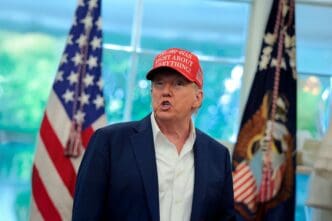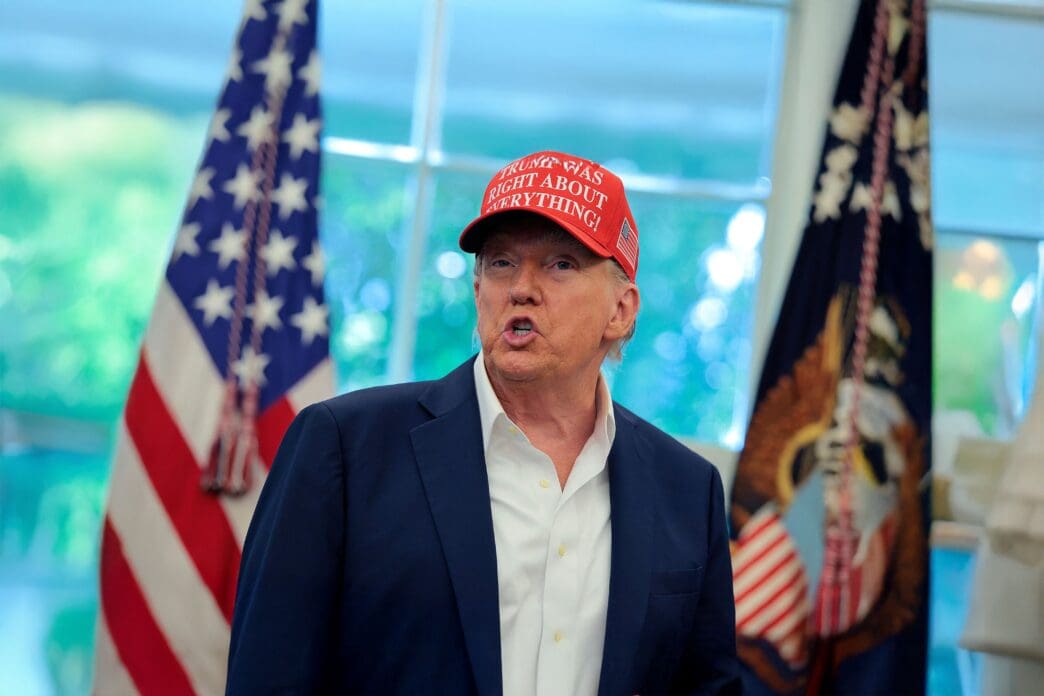Executive Summary
The Story So Far
Why This Matters
Who Thinks What?
The Supreme Court expressed significant concern Wednesday regarding President Donald Trump’s use of a broad federal law to impose global tariffs, with several justices from the court’s conservative wing questioning the administration’s legal position. The oral arguments, lasting over two and a half hours, focused on the administration’s contention that the International Emergency Economic Powers Act (IEEPA) grants the president power to levy tariffs as a form of “regulation” of imports. This case could have substantial implications for both presidential authority and the national economy.
The administration’s argument centers on the IEEPA’s language allowing the president to “regulate… importation” during emergencies, asserting that tariffs are a common regulatory tool. However, businesses challenging the duties dispute this interpretation, arguing that tariffs constitute a tax on American consumers, not a mere regulation, and that the 1970s law was not intended for such a purpose.
Judicial Scrutiny
Chief Justice John Roberts quickly highlighted that the IEEPA has never before been used to impose global tariffs. He questioned the administration’s justification, noting that it seemed to claim “a power to impose tariffs on any product, from any country, in any amount, for any length of time,” which he described as a “misfit” for the law.
Justice Amy Coney Barrett also pressed the administration on historical precedent, asking if there was any other instance where the phrase “regulate importation” was understood to confer tariff-imposing authority. She dismissed the administration’s reference to an intermediate appellate court case involving President Richard Nixon, emphasizing the lack of Supreme Court precedent.
Justice Brett Kavanaugh explored the Nixon administration’s 1971 imposition of a 10% tariff, which was later justified under the Trading with the Enemy Act, a precursor to IEEPA with identical “regulate” language. Kavanaugh questioned why Congress did not alter this language when enacting IEEPA if it intended to restrict presidential tariff authority.
Economic and Legal Implications
A major concern raised during arguments was the potential for businesses to receive nearly $90 billion in tariff refunds if the court rules against the Trump administration. Justice Barrett questioned the practicalities of such a process, asking if it would be a “complete mess,” to which Neal Katyal, representing the challenging businesses, conceded it would be “difficult.” Justice Samuel Alito suggested the need for a timely resolution to prevent further complications from increased tariff collections.
The court’s three liberal justices – Elena Kagan, Sonia Sotomayor, and Ketanji Brown Jackson – consistently pushed back against the administration’s arguments. Justice Jackson asserted that Congress enacted the IEEPA to “constrain,” not expand, presidential power, making the administration’s interpretation seem inconsistent with the law’s intent. Justice Kagan criticized President Trump’s frequent declarations of emergencies to justify various policies, noting that “everything all the time” seems to be an emergency, undermining the specific purpose of emergency powers.
The “Major Questions Doctrine”
The “major questions doctrine,” which requires clear and specific statutory language for agencies to exercise authority on issues of significant political or economic impact, also featured prominently. Katyal argued that this doctrine, previously applied by the conservative majority to block policies from President Joe Biden’s administration, should apply equally to Trump’s tariff authority. Justice Sotomayor reinforced this point, stating, “We have never applied it to foreign affairs, but this is a tariff. This is a tax.” The administration countered that the doctrine has not been applied in the foreign policy context, where presidents typically receive deference.
The Supreme Court’s eventual decision will weigh the scope of presidential emergency powers against congressional intent, with significant ramifications for both executive authority and the U.S. economy.








